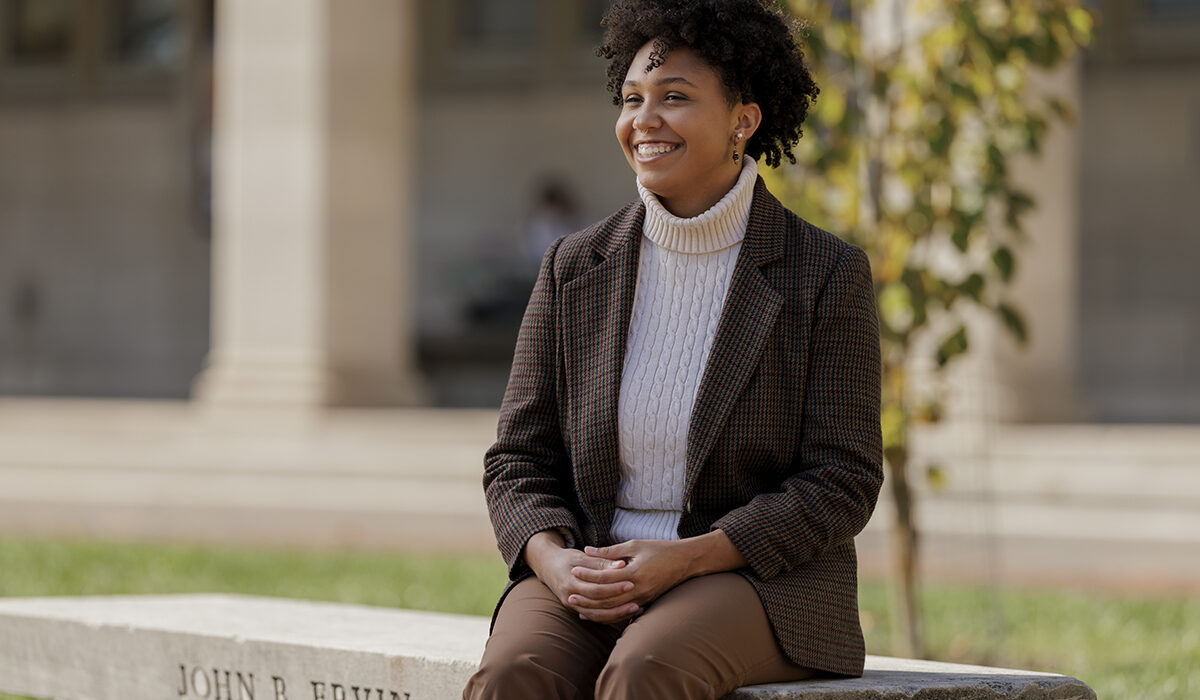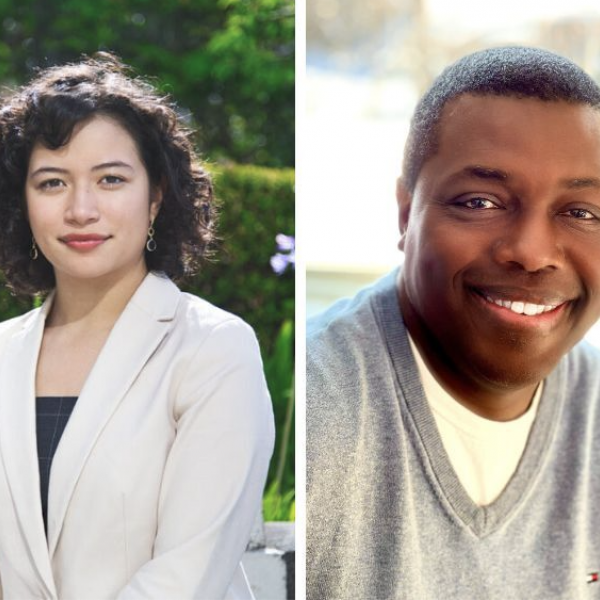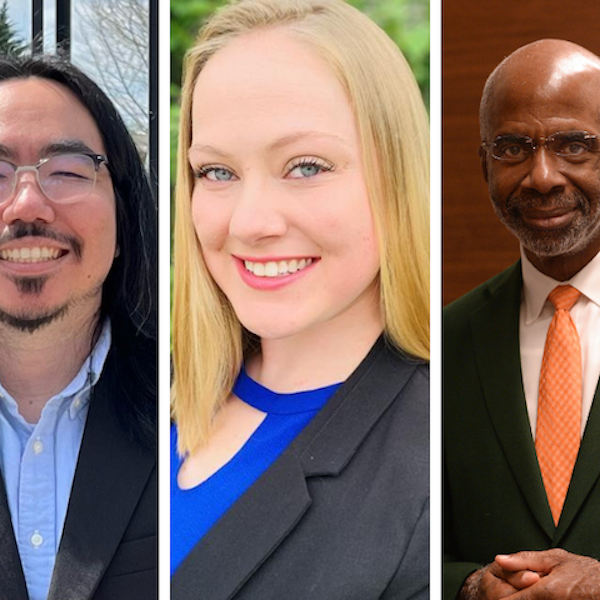WashU’s 30th Rhodes Scholar wants to help grassroots leaders find climate solutions.
Washington University in St. Louis senior Victoria “Tori” Harwell has been selected as a Rhodes Scholar, the 30th winner in university history. Harwell was among the 32 students nationwide selected Saturday, Nov. 11, to receive the prestigious honor that provides scholars the opportunity to earn an advanced degree at Oxford University.
Harwell plans to pursue sequential degrees in nature, society and environmental governance and in African studies at Oxford. Harwell, who uses both they/them and she/her pronouns, wants to use her education to empower grassroots leaders to address climate change in their local communities.
Harwell, of Denver, is majoring in African and African American studies and in environmental analysis, both in Arts & Sciences, at WashU and is both a Udall and a Mellon Mays scholar. They also are a member of the esteemed John B. Ervin Scholars Program, which has produced four university Rhodes Scholars since 2013.
Chancellor Andrew D. Martin praised Harwell for her intellectual curiosity and global commitment to a more sustainable future.
“Tori is an exceptional scholar who believes in lifting up the voices of the marginalized,” Martin said. “I’m proud of all Tori has already accomplished at Washington University, and I am confident that she will thrive at Oxford.”

Creating a grassroots movement
To address today’s climate crisis, Harwell studies its roots.
“We talk a lot about carbon footprints and our own individual behaviors like the cars we drive or using plastic straws, but the problem is a much deeper one, one that has been forming over the course of 500 years,” Harwell said. “My research looks at how colonization has dramatically changed the landscape and how we interacted with the land. Decisions made by colonial administrators hundreds of years ago continue to impact political and geographical landscapes today.”
During their years at WashU, Harwell has studied sustainable design in South Africa, supported Black farmers as a Gephardt Institute St. Louis Fellow and served as a volunteer teacher for the Organization for Black Struggle.
She also has become an expert in the unlikely but illustrative subject of the Cadbury chocolate company, traveling to both Birmingham, England, where the company is based, and Ghana, where its cocoa has been harvested for more than a century. Harwell recently discovered an early Cadbury document by employee E.J. Organ that captures the prevailing attitude that colonized lands are there to be exploited.
“Organ dehumanized the people and conceptualized land as this virgin body that had never been touched. He was just one man, but he informed an entire company,” Harwell said. “We can’t have the E.J. Organs of the world telling communities how to work. It’s not right and it’s not ethical. So, to me, the best way to make sure people don’t get left behind is to create a grassroots movement that is bottom up and not top down.”
Harwell’s profound empathy coupled with their courage to upend entrenched systems makes Harwell a changemaker, said Jodi Allemeier, one of Harwell’s instructors in Cape Town, South Africa.
“Tori stands out not just for her academic prowess, but also for her authentic character,” Allemeier wrote in her recommendation. “Her ability to comprehend and untangle the complexities of unfamiliar urban landscapes demonstrated her unique intellectual and social curiosity and ability to derive meaningful insight from classroom and field experiences.”
Ultimately, Harwell wants to help nongovernmental organizations (NGOs) leverage local wisdom to develop effective policies, whether that be in Africa, South America or Asia. They also plan to earn a law degree to help local people protect their lands. Harwell believes the cumulative effect of local efforts will lead to global change.
“There is so much to learn by understanding how people — not just Black people — are engaging with the land and reacting to climate change,” Harwell said. “I’m just one person, but I want to be part of a network of people that shifts how we think about land and our future.”
Read more on The Source.




